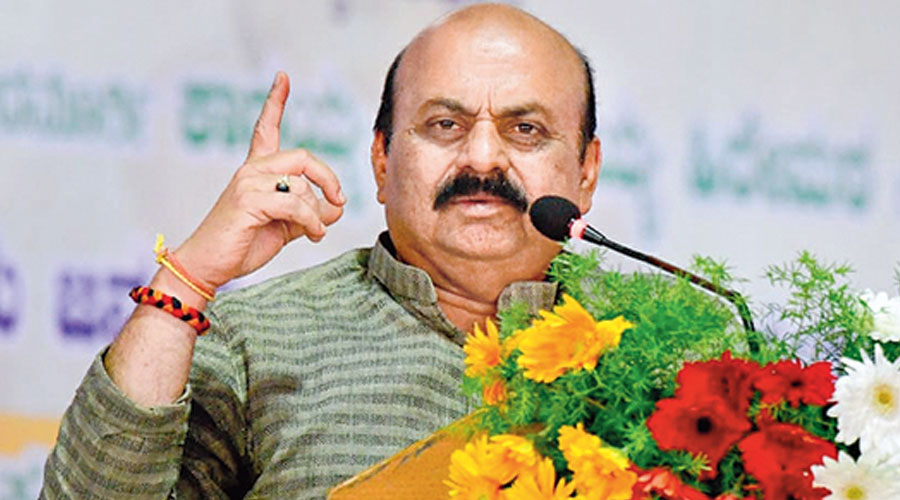The BJP government in Karnataka has been widely criticised for scrapping the 4 per cent reservation for Muslims within the Other Backward Classes (OBC) and redistributing the quota among the politically influential Lingayat and Vokkaliga communities ahead of the Assembly elections.
The cabinet on Friday scrapped the 4 per cent reservation for Muslims under the OBC quota and included them in the 10 per cent quota for Economically Weaker Sections that include multiple communities such as Brahmins and other upper castes.
The 4 per cent quota docked from Muslims has been equally split between the Lingayat and Vokkaliga communities whose share in OBC reservation would increase to 7 and 6 per cent, respectively.
Chief minister Basavaraj Bommai justified the move by saying there was no scope for religion-based reservation under the Constitution. He said the poor from all communities would qualify for the EWS quota.
While Lingayats have for long been the BJP’s key vote bank, the party fears losing sections of the community, which is why they have been tapping into the Vokkaliga community.
Senior Congress leader Dinesh Gundu Rao tweeted: “This is BJP’s divide & insult policy. Why sacrifice Muslims so that you can appease Lingayats & Vokkaligas? Both could’ve been given separate reservation.”
Parliamentarian Asaduddin Owaisi tweeted: “This is @narendramodi’s ‘Muslim outreach’ & love for Pasmanda Muslims. Whether it’s hijab or reservations, the target is Muslims’ progress in education & employment.”
Jamiat Ulama-i-Hind president Maulana Mahmood Madani condemned the tinkering with the reservation for Muslims and termed it as“harmful to the comprehensive development policy of the country”.
A statement issued by the organisation quoted Maulana Madani as saying that not all Muslims in Karnataka were covered under the reservation. “Unfortunately, the BJPdispensation always claims that reservations cannot be given on religious grounds, but it never considers Muslim backwardness. As far as the Karnataka issue is concerned, religion is not the basis here and not all Muslims are benefiting from it. Only 12 backward Muslim communities are covered.”










